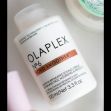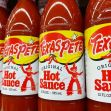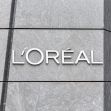Earlier this month a California resident, Veronica Eshelby, filed a proposed class-action lawsuit against L’Oreal USA, Inc, claiming that the company misleads their consumers into believing their products are made in France. Eshelby brought the case arguing that L’Oreal profits off false advertising because American consumers often associate products from France as “high-end, luxury items” which increases the demands for the products, and therefore increases the price.
The L’Oreal products in the case are not made or even sold in France. They are designed by the company’s subsidiary office in New York and then made in North Little Rock, Arkansas, among other locations across the United States. The lawsuit claims that the company uses French words, such as “fini ma,” for matte finish, “sans huile” for oil-free,” and even just the use of the city name Paris on some of their products to suggest the products’ origin is foreign.
False representation or false advertising is a federal crime under the Lanham Act, 15 U.S.C. § 1125(a), which states “False designations of origin, false descriptions, and dilution [is] forbidden.” A civil action can be brought to court against a person or company which uses “any false designation of origin, false or misleading description of fact, or false or misleading representation of fact” if it is believed the use will “deceive” the consumer as to the “affiliation, connection, or association … as to the origin” of the product.
Under 15 U.S. Code Section 54, a company or individual that is found guilty of a false advertisement that is used with “intent to defraud or mislead” will be guilty of a misdemeanor and subject to a fine not more than $5,000 or imprisonment not more than six months. The penalty doubles if convicted for a second time.
Additionally, each state has its own legislation against false advertising. California, where the plaintiff resides, prohibits false advertising in their Business and Professions Code Section 17500. Any company or individual found to be in non-compliance with this code can be fined up to $2,500 and/or imprisoned up to six months.
However, this case was filed in federal court under 28 United States Code Section 1332(d)(2) which rules that “district courts shall have original jurisdiction” for class action suits where the value in controversy exceeds $5 million and when the plaintiff is “a citizen of a State different from any defendant.” Since L’Oreal’s principal place of business is in New York and the plaintiff is a citizen of California, the case could properly be brought in federal court.
L’Oreal USA, Inc., is a Deleware corporation with their main place of business located in New York, New York. The L’Oreal Group is the largest cosmetic company in the world. In 2021, the conglomerate brought in $32.28 billion in revenue with North America and North Asia as the primary locations of growth. The 2021 Annual Report noted that L’Oreal Paris’ Infallible powder was a breakthrough product in North America. The L’Oreal group’s consumer product lines include Maybelline, NYX, Lancome, Garnier, and Giorgio Armani beauty. By 2027, the cosmetics industry as a whole is expected to be worth at least $463.5 billion as an industry.
False advertising claims are not new, and many companies over the years have been caught and made liable for significant payouts to consumers. L’Oreal is also not new to controversy over its advertising. In 2014, L’Oreal agreed to a settlement that would cost the company $16,000 per future violation and banned them from making claims about anti-aging after they were forced to admit their Lancome Genifique and P’Oreal Paris Youth Code skincare products were not in fact “clinically proven” to make consumers have “visibly younger skin.”






